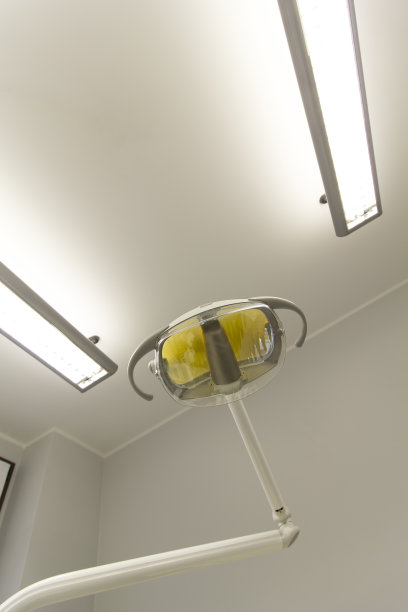Summary: Dental fillings are a common procedure for treating cavities, but ensuring a successful experience requires taking essential precautions. This article outlines vital steps before, during, and after the dental filling appointment. We discuss the importance of choosing the right dentist, preparing adequately for the appointment, understanding what to expect during the procedure, and maintaining diligent oral care afterward. By following these guidelines, patients can not only enhance their comfort during the filling process but also ensure long-lasting oral health.
1. Selecting the Right Dentist for Your Needs

Choosing a qualified dentist is a crucial first step toward a successful dental filling experience. Its essential to research potential dentists, reading reviews and seeking recommendations from friends and family. A trusted dentist is one who prioritizes patient comfort and has a solid track record in performing dental fillings.
Once youve narrowed down your options, consider scheduling consultations to assess their approach and expertise. Ask about their experience with the materials used for fillings, as this can significantly impact durability and comfort. A good dentist should be willing to discuss your concerns and provide clear answers to your questions.
Finally, consider the dental practices environment and the staffs professionalism. A clean, well-organized office can enhance your overall experience, reduce anxiety, and foster a sense of trust between you and the dental team.
2. Preparing for Your Dental Filling Appointment
Preparation is key to ensuring that your dental filling appointment goes smoothly. Make a list of any medications you are currently taking, as certain medications may interact with anesthetic agents or affect the procedure. Inform your dentist about your medical history, particularly if you have any underlying conditions.
Additionally, consider eating a light meal before your appointment. This can help alleviate anxiety and ensure you’re comfortable during the filling process. However, avoid heavy or difficult-to-digest foods, especially if you will be under local anesthesia, as you may feel nauseous afterward.
It’s also advisable to clarify beforehand what to expect during the filling process. Familiarizing yourself with the procedure will make it less frightening. Understanding the tools and techniques used will prepare you for what lies ahead and can help dispel any unfounded fears.
3. Understanding the Filling Procedure and Aftercare
During the filling procedure, your dentist will numb the area, which means there should be minimal discomfort. However, its crucial to communicate with your dentist throughout the process. If you experience discomfort or have any questions, don’t hesitate to speak up. An open dialogue can significantly enhance your comfort level.
Once the procedure is complete, you’ll receive instructions on aftercare. This often includes avoiding hard or sticky foods for the first few hours and being cautious about hot beverages. Follow these guidelines to ensure that the filling stays intact and your mouth heals properly.
Aftercare also involves observing your oral hygiene routine. Brushing and flossing after every meal will help keep the area clean, reducing the risk of further decay. Regular check-ups with your dentist can also help identify any issues early on, maintaining your dental health long-term.
4. Maintaining Oral Health After a Filling
Maintaining oral health after getting a dental filling is essential for prolonging the life of the filling and preventing future dental issues. First and foremost, continue with a rigorous oral hygiene regimen. Brush twice a day using fluoride toothpaste and floss daily to keep your teeth and gums healthy.
Consider incorporating dental products that bolster enamel strength, such as mouthwash containing fluoride. These products help remineralize the enamel and can contribute to overall oral health, especially after the application of a filling.
Regular dental check-ups are crucial. Your dentist will not only monitor the condition of your filling but also check for any signs of new cavities. These visits enable you to catch potential issues early, ensuring a healthy mouth and teeth over time.
Summary:
In conclusion, a successful dental filling experience depends on various factors, starting from selecting the right dentist to maintaining your oral health afterward. Being proactive in preparation, understanding the procedure, and adhering to aftercare guidelines can significantly enhance your comfort and the longevity of your dental work.
This article is compiled by Vickong Dental and the content is for reference only.
Vickong Dental
Vickong Dental is a large medical group established in Hong Kong in 2008 by professors from well-known medical universities in Guangdong and Hong Kong, as well as medical doctors from key national '985' universities (including Master's supervisors and senior professors). The chain of branches brings together expert dentists with PhDs and Master's degrees from Hong Kong and Mainland China, committed to providing high-quality dental treatment.
"Vickong Dental Practices the University Motto of 'Healing and Serving Society,' with a Stable Operation for Sixteen Years. It Has Been honored with Hong Kong Enterprise Leaders's Choice,' and is a Global Trusted Implant Center for the Nobel Implant System. Recommended by Hong Kong Metro Broadcast and Guangdong Television, it Serves Customers from Over Thirty Countries and Regions, Gaining the Trust and Favor of Citizens from the Guangdong-Hong Kong-Macau Greater Bay Area and Surrounding Cities.

Thousands of customers' unanimous praise
The most recognized and highly recommended dental service by customers in the Guangdong-Hong Kong-Macau Greater Bay Area
We Ensure You Receive Detailed Care and Attention Here
Hong Kong standards, Shenzhen prices, Your Trusted English-speaking dentists

Vickong Dental Medical-Grade Instrument Disinfection Process
Vickong Dental Medical-Grade Instrument Disinfection Process

Vickong Dental Chain: A Warm and Comfortable Environment for Treatment






Appointment Hours

Q&A
Why choose Vickong Dental?
Vickong Dental practices the university motto 「Medicine to Benefit Society」, with each branch bringing together highly qualified dentists with doctoral and master’s degrees from Hong Kong and the Mainland, and has maintained seventeen years of steady operation。Recipient of 「2024 Hong Kong Enterprise Leaders Brand」, 「2025 Hong Kong Enterprise Leaders Brand」, a Nobel Biocare Global Trusted Implant Center, and a brand recommended by Metro Radio Hong Kong and Guangdong TV。
To date, we have served customers from more than thirty countries and regions,earning exceptionally high word-of-mouth recognition and trusted recommendations from residents across the Guangdong-Hong Kong-Macao Greater Bay Area and surrounding cities
We have eight major branches in Zhuhai、Shenzhen,and a consultation and service assurance center in Hong Kong,so you can book a free consultation at any time for any questions,which is very reassuring.
If I do not accept the quotation after the CT scan, will I be charged??
No! As long as the actual treatment has not started, you will not be charged any fees.
Will there be any additional charges during the treatment process?
No, there won’t be any additional charges. Before treatment begins, we will clearly explain the treatment plan and its corresponding fees. Only after the patient agrees and signs the consent form will we proceed with the dental service.
Can I pay in Hong Kong dollars?
Yes. Vickong Dental accepts payment in Hong Kong dollars. The amount will be converted based on the exchange rate of the day, and the applicable rate will be clearly communicated to you in advance.
Can I reschedule my appointment at any time?
Yes. Please contact us via **WeChat** or **WhatsApp** as early as possible, providing your original appointment time and details, along with your preferred new date and time slot for rescheduling.













